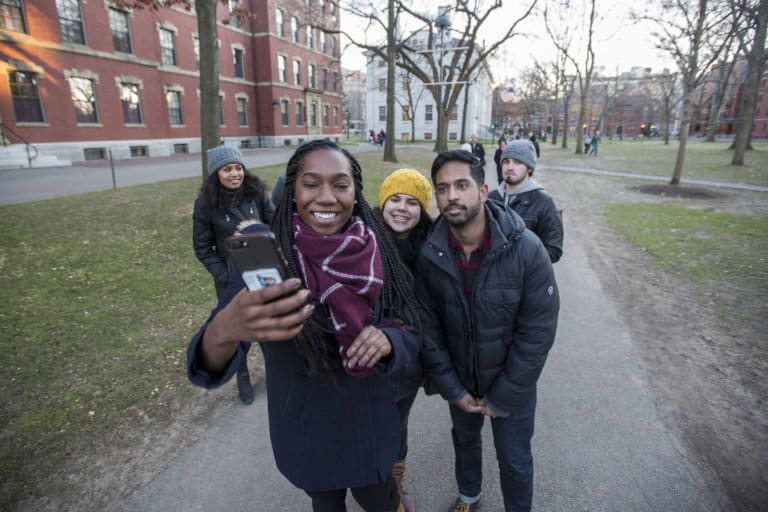
For students on a tight budget, a full scholarship is a once-in-a-lifetime opportunity to live their dreams of studying abroad. Take the Chevening Scholarship, for example. This prestigious international scholarship grants successful applicants a chance to study in the UK for a year on a fully funded master’s programme.
While this is a coveted opportunity, beware of the strings attached to a full-scholarship application. Need an example? Listen to this story Hadi Azmi shared on his Twitter post, which was subsequently covered by SAYS, a Malaysian social news company.
Hi guys. Regarding that JPA/TalentCorp thing I tweeted a couple of days back, the folk at @saysdotcom reached out to my friend in the story.
In case you were sceptical of my recounting, here it is straight from him:https://t.co/SdU5RsA5kK
— Hadi Azmi (@amerhadiazmi) September 13, 2022
Wan (whose name was changed to protect his privacy) secured a scholarship with the Public Service Department of Malaysia (JPA) and studied at the University of Pittsburgh in Pennsylvania from 2008 to 2011.
Upon graduation, he was offered a job by TalentCorp under the Scholarship Talent Attraction and Retention (STAR) programme. This joint initiative with JPA provides job opportunities in the private sector to JPA scholars to work while serving their federal scholarship bond. (Generally, JPA scholars are placed in the public sector)
After returning to KL, he went to the JPA office with all his academic documents to “lapor diri” (report himself). JPA requested the Malaysian to apply to the Public Services Commission (SPA). Before Wan could submit an application to the SPA, he accepted TalentCorp’s offer.
Five years later, JPA sued Wan and demanded him to pay RM495,343.61 (approximately US$107,217.27 at the time of writing) for allegedly absconding from his bond — all because he did not complete the self-reporting process. Wan is still paying the sum back in instalments.
Not knowing the full details of your scholarship can have nasty and costly consequences. So before you apply for a full scholarship as an international student, look out for these four things:

Wan’s dreams were crushed when the Public Service Department in his home country demanded him to pay US$107,217.27 for allegedly absconding from his bond. Source: Joe Raedle/Getty Images North America/Getty Images/AFP
Applying for a full scholarship: 4 things to remember
1. Be aware of what the scholarship covers
Most scholarship award monetary benefits. In some cases, scholarships like the GIFT Internship Programme in South Korea cover living expenses and other allowances. Usually, the scholarship programme will advertise what they are covering. If you have any doubts, you can contact the designated email to clarify any doubts about the scholarship coverage.
Check how you will receive your scholarship funds, as it will help you track and manage your finances. Some funds are paid in instalments, while other scholars may receive their scholarship money in a bulk payment.
2. Read the terms and conditions
If there’s one thing we can learn from Wan’s story, it’s this: be vigilant when applying for a scholarship. Read the terms and conditions carefully so you know the following:
- Whether you will be bonded with a company (that means you have to work for the organisation from which you received the sponsorship)
- Whether you need to return to your home country after graduation
- Whether you can hold more than one scholarship
- The grades you need to achieve to maintain the scholarship

Watch out for scholarship scams that require you to send money upfront, pay an application fee, or guarantee that you will win a scholarship. Source: Ina Fassbender/AFP
3. Watch out for scams
Always source your information about any scholarship from a reputable site, preferably from the scholarship provider’s website. Some scholarship scams encourage you to send money upfront, pay an application fee, or guarantee that you will win a scholarship.
When you find yourself in this situation, ask yourself: “Is it too good to be true?” Chances are, it usually is. With a bit of research and fact-checking, you’ll quickly debunk these scams.
4. Scholarships do not always transfer
On a scholarship but want to change schools? Be wary that you might be not able to take your scholarship with you. Generally, you are only allowed to use the scholarship at the institution you are attending when it was awarded.
However, some scholarships are not programme-specific. Depending on the terms and conditions of the programme, you can transfer to another programme during the tenure of your scholarship — which is the case for the University of Queensland in Australia.










